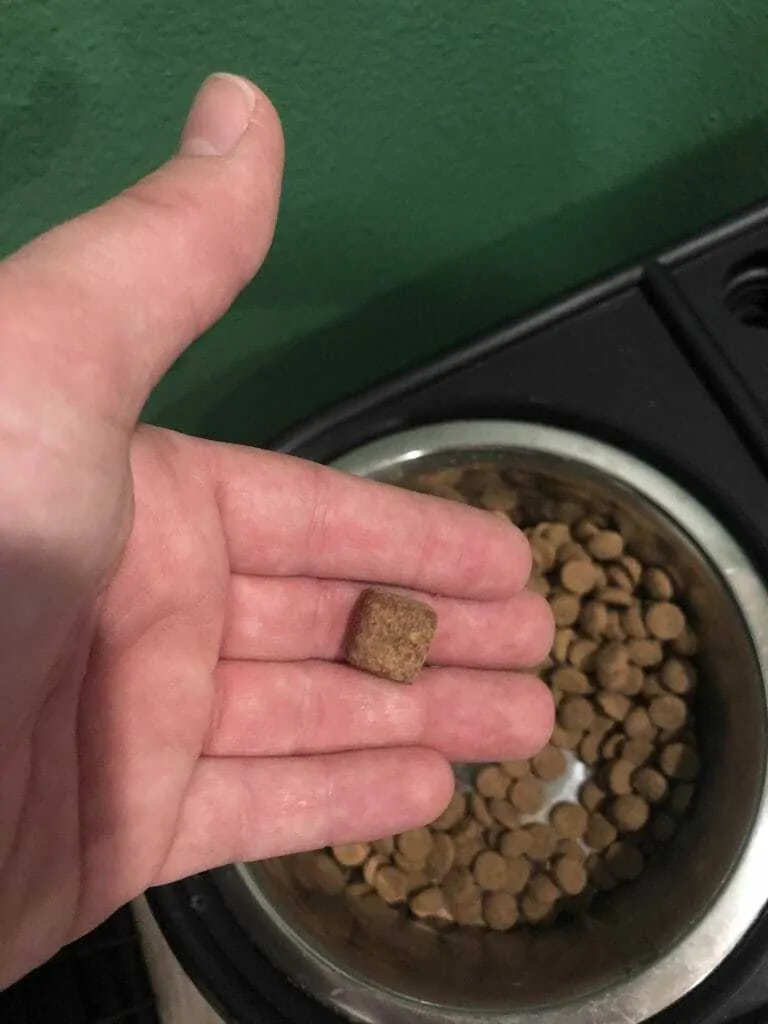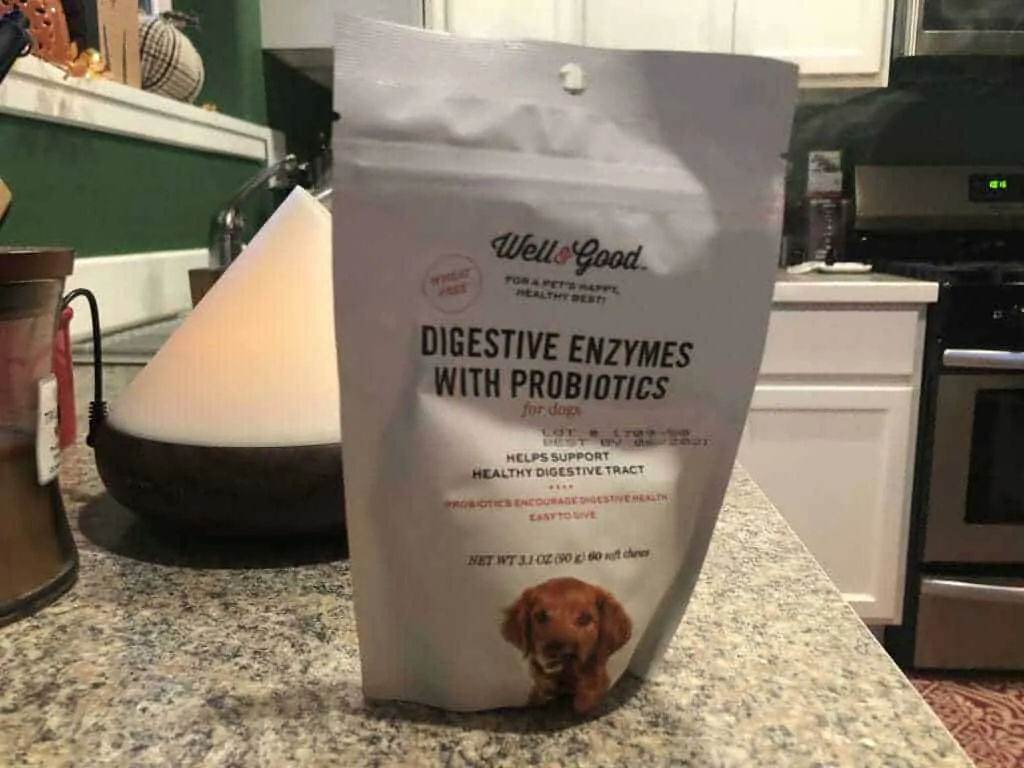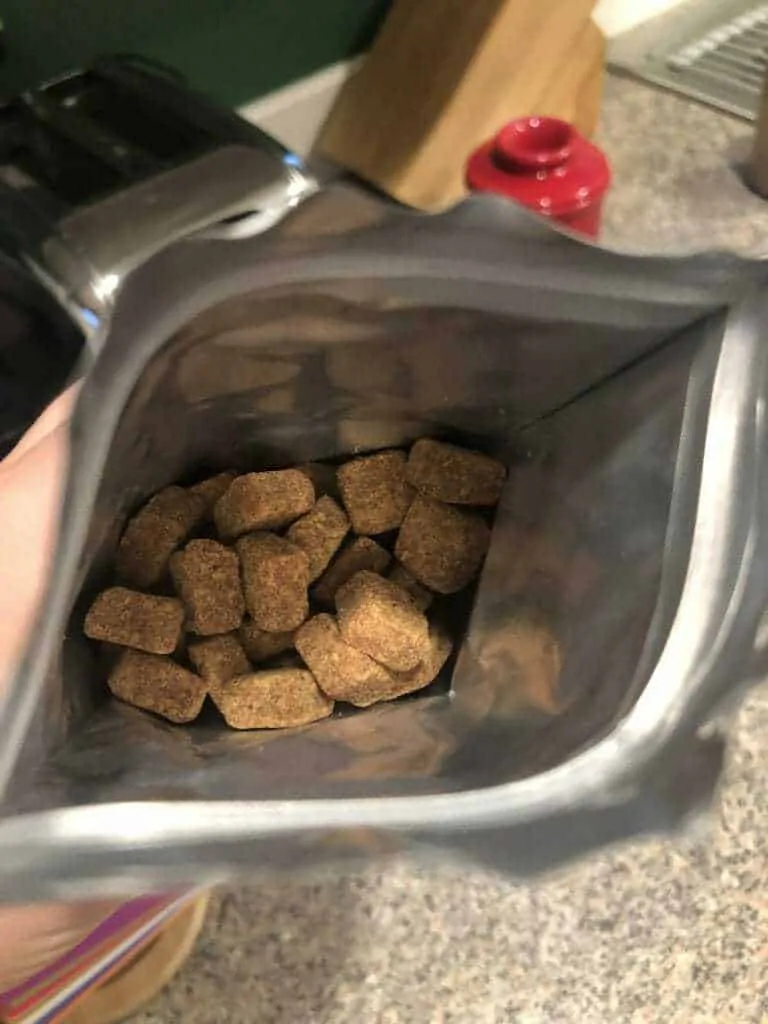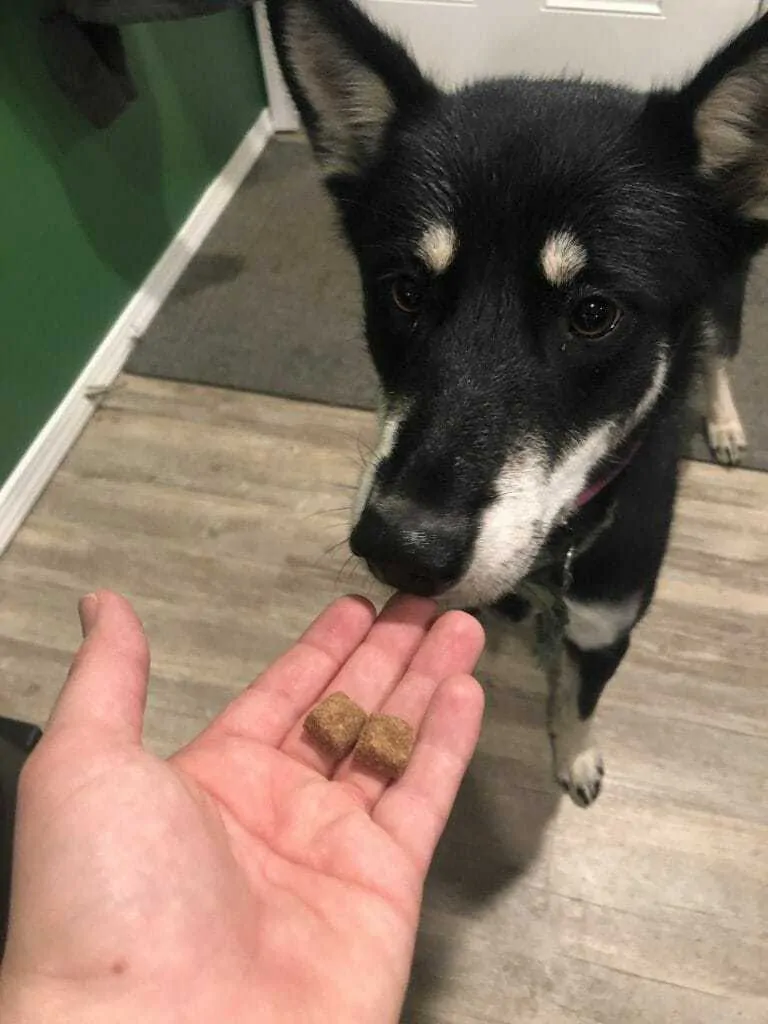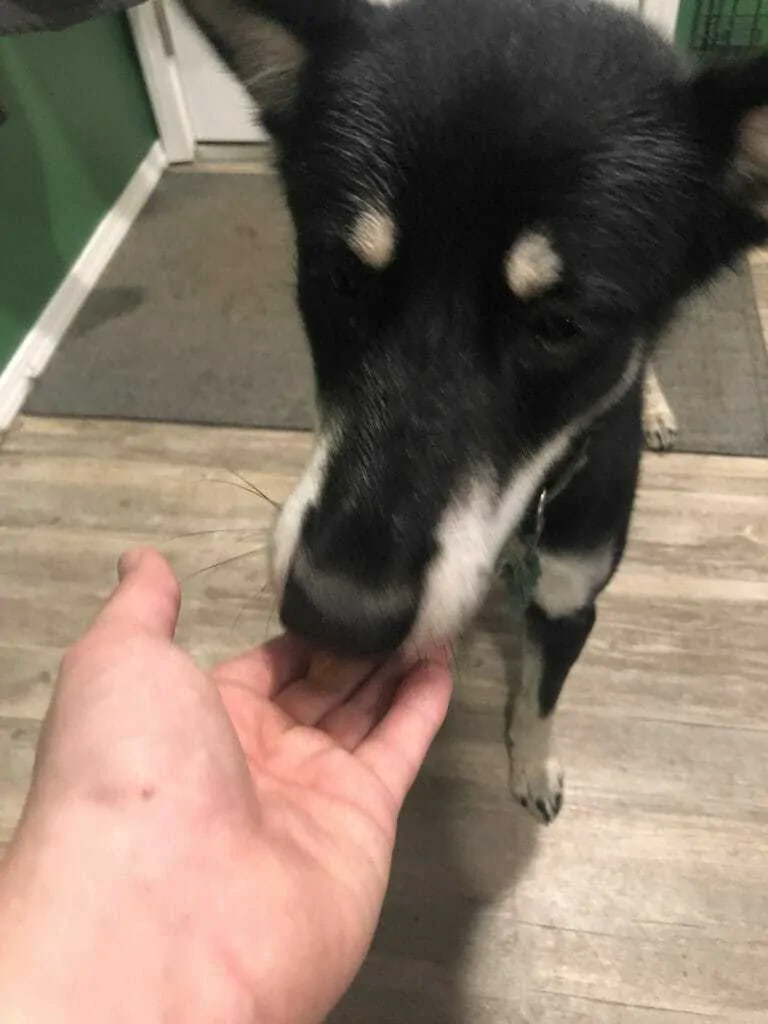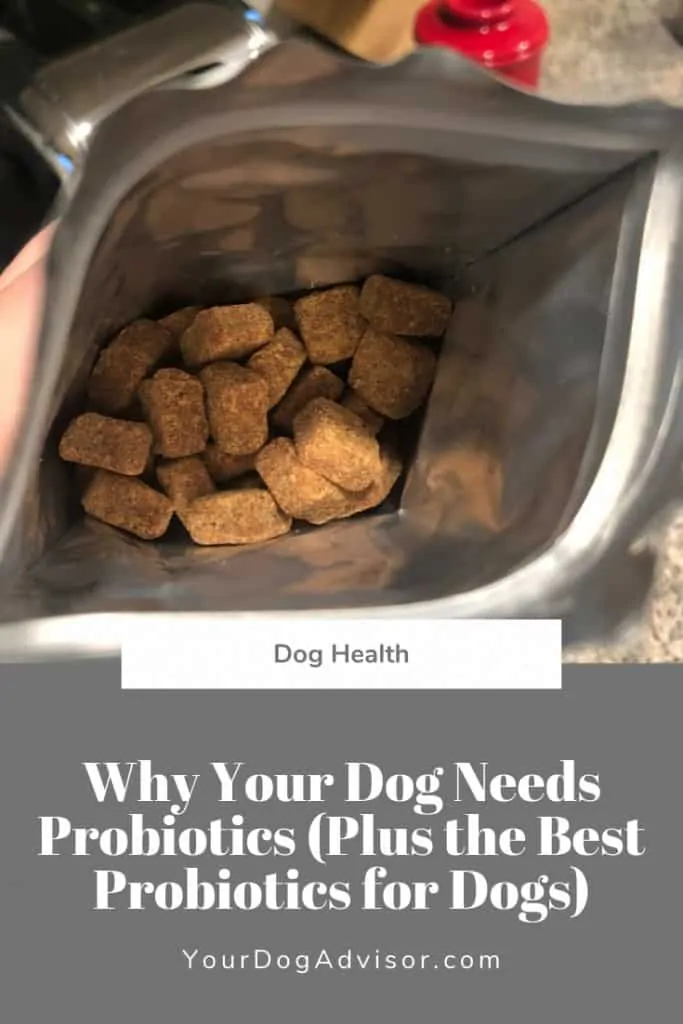We all know about antibiotics, and how if you take too many of them, your body starts to build resistance to them and they become less effective. In the last several years, a newer term has cropped up: probiotics. Unlike antibiotics, which destroy bacteria both good and bad and are only available by prescription, probiotics are readily available in the yogurt or health sections of the grocery store. But what are probiotics, exactly? Are they good for dogs? If so, what are the best dog probiotics? Are there any we should avoid?
All those questions and more will be answered below!
Contents
What are Dog Probiotics?
Our guts are full of bacteria. Some of the bacteria is good, some is neutral, and some isn’t so great. It all depends on your health and what you eat. When people talk about maintaining a healthy gut microbiome, they’re talking about keeping all the good bacteria present in the gut. Having lots of good bacteria in your gut helps you digest your food more easily and keeps the barrier between your intestines and your bloodstream strong. The gut also helps to regulate your mood, your weight, your immunity, and more.
People have recently become more attuned to priming their gut bacteria for optimal health. That’s why you’re sure to find probiotics like kombucha, a tea-based fermented drink, at any grocery store you visit. (Fermentation provides those healthy, live bacteria that the gut loves so much.) Even Costco sells kombucha these days!
But does this all apply to dogs, too? Do dogs have gut bacteria like humans do?
The answer is yes! Absolutely. Dogs tend to have more digestive issues than humans sometimes, and they can benefit greatly from probiotics that support healthy bacteria colonies in their intestines.
The best thing to do is give your dog probiotics every day. Even if your dog is perfectly healthy, a probiotic will help him stay that way. And if he’s suffering from diarrhea, vomiting, food sensitivities, low appetite, parasites, and any other digestive issues, talk to your vet about introducing a probiotic to help strengthen your dog’s gut microbiome.
Don’t only give your dog human probiotics
While it’s okay to give your dog small amounts of kombucha and other probiotics meant for humans, it’s best to include dog probiotics that reflect canine stomach flora. According to the American Kennel Club, a good probiotic for dogs will contain bacteria such as:
- Lactobacillus acidophilus
- Enterococcus faecium
- Bifidobacterium lactis
- Lactobacillus casei
- Bifidobacterium breve
Check the labels when you buy probiotics to make sure one or more of those bacteria are represented!
Remember the prebiotics
Prebiotics are fibers that support probiotics. Basically, you can think of them as food for probiotics. So making sure your dog’s probiotic also contains a prebiotic is important. You can also add a prebiotic independently of the probiotic. If you’re feeding your dog a high-quality food, chances are prebiotics are already part of your dog’s diet. Common foods that act as prebiotics include: flaxseed, oats, pumpkin, chicory, yucca root, and more.
Onto the Best Dog Probiotics!
Here’s something to remember before you purchase probiotics: they are sensitive to temperature. They are, after all, live microorganisms and you don’t want them to die before they get into your dog’s gut. So make sure you keep them cool and follow any instructions about how to care for them.
And now, our list of the best probiotics for dogs.
Zesty Paws Probiotic Bites for Dogs
Zesty Paws makes lots of fantastic chewable supplements for dogs, and these probiotic bites are excellent. They contain prebiotics in the form of fiber-rich pumpkin and papaya, plus 3 Billion CFU of the microorganisms Bacillus coagulans, Lactobacillus acidophilus, L. (for Lactobacillus) plantarum, L. brevis, L. fermentum, and L. lactis. All of these are excellent probiotic microorganisms for dogs — but you might be saying, hold up! What does CFU mean? How are there 3 Billion of them in one serving of these chews?
The initials CFU stand for colony-forming unit. According to Culturelle probiotics, a colony-forming unit is “the number of live and active micro-organisms that can be found in each serving of the probiotic you are taking.” So in the case of these Zesty Paws Probiotic Bites, each soft chew contains 3 billion live and active cultures that will go on to form colonies of healthy bacteria. That’s a lot! In fact, 3 billion can seem like overkill. But it’s not. We have trillions and trillions of microorganisms living in our guts, and so do dogs. Probiotics for humans often reach up to 15 billion CFU or more!
The Zesty Paws bites are specially designed to help with digestive problems like bloating, gas, diarrhea, stomach issues, and constipation. It’s amazing that one chew can help so many different problems, but what’s wonderful about probiotics is that they help resolve not the symptoms but the reasons for the symptoms.
What we love about these probiotic chews is that they’re safe for every age and stage of dog, from puppy to senior. Plus, the pumpkin-flavored chews are made without heat, ensuring the integrity of the live organisms, and the chews are free of artificial flavorings and preservatives. They’re also grain-free and made in an FDA-registered facility.
No products found.
Tummy Treats Probiotics for Dogs
These chicken-flavored probiotic chews, like the Zesty Paws, are made using a heat-free method and in a FDA-registered facility. But they’ve got 4 Billion CFU per TWO soft chews (as opposed to per 1 soft chew like Zesty Paws) and slightly different active culture strains: Lactobacillus plantarum, L. brevis, L. lactis, L. fermentum, and L. acidophilus. In addition, these chews feature the following enzymes to work together with the bacterial colonies in your dogs’ gut to speed up digestion: amylase, protease, lipase, cellulase, lactase, and bromelian.
In addition, these Tummy Treats include prebiotics in the form of flaxseed and garbanzo powder. Altogether, they’re best for dogs dealing with diarrhea, scooting (anal gland issues), upset stomach, stinky breath, and even hot spots. And if your dog has been on antibiotics recently, giving her these probiotics will help her rebuild those crucial good gut bacteria quickly.
No products found.
Well & Good Digestive Enzymes with Probiotics for Dogs
We love these digestive enzymes with probiotics from Well & Good!
These are the soft chews I decided to try for Eira, my Alaskan shepherd. Like many of the dogs I’ve owned, Eira occasionally battles with unexplained vomiting and diarrhea. It’s often an isolated incident when she gets sick, but it’s also because she eats grass to intentionally vomit. She likes her food and doesn’t get into non-food items, so I think the root of the problem lies in her digestive tract. Which is why I started her on these soft chews.
These wheat-free chews look just like dog treats — and taste like them too!
She seems to think they’re treats, which makes it easy to give them to her every day.
Eira takes two soft chews every day. She weighs about 45-50 pounds.
Yum!
All gone!
These probiotics contain 95 million CFU of Bacillus coagulans, along with alpha-Amylase, lipase, cellulase, and protease. They also include flaxseed as a prebiotic. While not as diverse in its probiotic strains as the first two chews, these ones are rich in Bacillus coagulans, which is especially good at solving the problems behind diarrhea. Which is why I chose it for Eira!
The soft chews are also wheat free. These chews are a little less expensive than the first two (which are still reasonable) but they do come in a small bag, so keep that in mind if you have a large dog who takes 3-4 chews a day.
No products found.
Nutri Vet Pre and Probiotic Soft Chew
Dried cheese and liver meal are the yummy ingredients that get these soft chews into any dog’s mouth. If your dog struggles with taking other, less flavorful probiotics, give these a try — they’re very wallet-friendly, too. They contain 1 Billion CFU of Lactobacillus acidophilus, Bifidobacterium bifidum, and Enterococcus thermophilus. All three of these strains are pet-specific, which is a plus! If you’d rather not give your dog probiotics that contain human-specific probiotics at all, Nutri Vet’s probiotics are a perfect choice.
No products found.
1Purina Pro Plan FortiFlora
This veterinarian-recommended probiotic is expensive, but it’s high quality. The single included bacteria, Enterococcus faecium (1 Billion CFU), is especially for canine gut health, and each box you purchase contains 30 individually wrapped packets of probiotic powder that you can spread over your dog’s food every morning. The individual packaging ensures that the live and active cultures remain healthy and at peak potency until the moment your dog eats the probiotic.
One drawback here is that Purina Pro Plan FortiFlora doesn’t include a prebiotic, so make sure your dog is getting pumpkin, oats, flaxseed, or other prebiotic foods alongside these probiotics.
No products found.
NUSENTIA Probiotic Miracle for Dogs
If your dog is in dire need of probiotics — they’ve had a parasite infestation, for instance — this strong probiotic should really work miracles in helping your dog kick all the bad stuff from their system. Why? It’s a huge serving size — 360 scoops (1 scoop is a serving), to be exact, each containing 1 Billion CFU of live and active cultures. This is a wonderful probiotic powder for the amount you get. If your dog needs lots of probiotics over a longer period of time, try NUSENTIA Probiotic Miracle for Dogs!
The bacteria in NUSENTIA are Bifidobacterium animalis lactis, Lactobacillus acidophilus, Lactobacillus rhamnosus, Lactobacillus salivarius, Lactobacillus plantarum, and Lactobacillus reuter. Each of these is canine-specific! Additionally, the powder contains no animal by-products, corn, wheat, soy, or other unneeded ingredients. In fact, all it has is the live and active cultures, inulin (a prebiotic fiber), and stearic acid. Those are all the ingredients! This means you may have to combine it with something meaty and fresh for your dog to eat it if she doesn’t take it in her water or food.
No products found.
Petaxin Probiotics for Dogs
This probiotic contains 3 Billion CFUs per serving, plus 2 prebiotics, a tasty chicken flavor, and a reasonable price per box of 120 chews to match. Its bacteria strains are: Lactobacillus acidophilus, Bifidobacterium bifidum, Lactobacillus casei, Lactobacillus fermentum, Lactobacillus reuteri, Lactobacillus plantarum. Inulin and FOS (fructooligosaccharides) act as the prebiotics here, so if you’re more into something plant-based such as pumpkin or flaxseed, that’s not what you’ll find here. Still, these are excellent chews and are especially helpful for big dogs with belly troubles.
No products found.
Has your dog ever used a probiotic? Did it help? Any other suggestions for the best dog probiotics? Let us know in the comments!

Jen Jones is a professional dog trainer and behavior specialist with more than 25 years of experience. As the founder of ‘Your Dog Advisor’ and the ‘Canine Connection’ rehabilitation center, she applies a holistic, empathetic approach, aiming to address root causes rather than merely treating symptoms.
Well known for her intuitive and compassionate approach, Jen adopts scientifically-proven, reward-based methods, encouraging positive reinforcement over punishment. Jen specializes in obedience training, behavior modification, and puppy socialization. Her innovative methods, particularly in addressing anxiety and aggression issues, have been widely recognized. Jen has worked with many of the world’s leading dog behaviorists and in her free time volunteers with local animal shelters and rescue groups.
